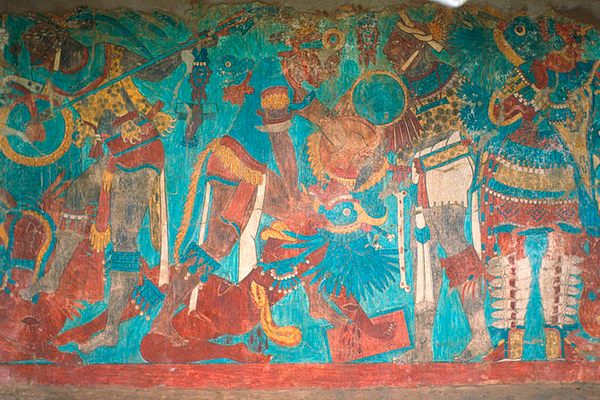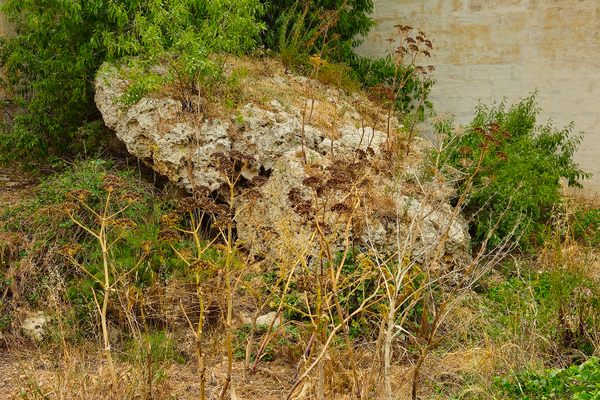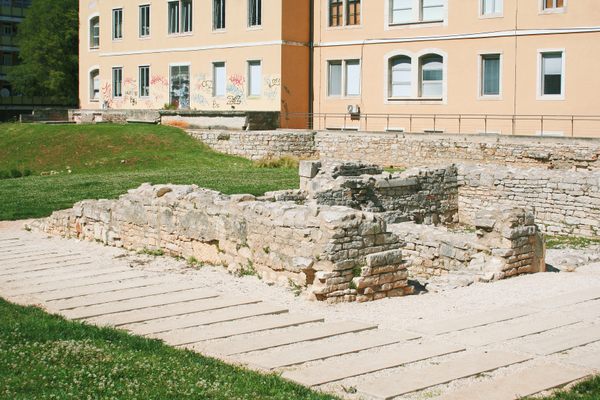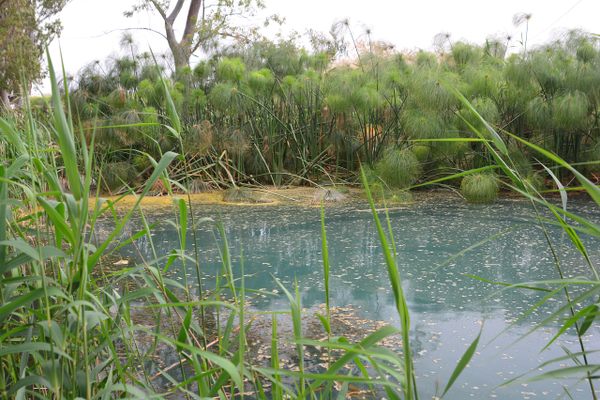About
In the 1940s, archaeologists began to explore the surroundings of the vast archaeological complex of Teotihuacán outside of Mexico City. In the course of this exploration, they uncovered the remains of a residential complex that contained a number of murals painted around the year 450. One of the buildings is known as the Palacio de Tepantitla, which may have been a palace, a priest's house, or the opulent residence of an aristocrat.
Tepantitla is located northeast of Teotihuacán’s most famous attraction, the Pirámide del Sol (Pyramid of the Sun). From the outside, the buildings look like other stables in the town of San Juan Teotihuacán, but upon entering the walls reveal traces of elaborate paintings.
One mural in particular stands out, and is considered by many the most impressive mural of all Teotihuacán: the mural of Tlālōcān. In Aztec mythology, Tlālōcān was the marvelous underworld ruled over by the water deity Tlaloc, and could be accessed by people who died from drowning, lightning, or an illness associated with water. The character in the border of the mural resembled other depictions of Tlaloc, which led researchers to believe that the painting represented his watery paradise.
In the painting, a number of small figurines seem to play or dance around a hill formed by waterfalls and rivers of water. Unlike other murals that have been found throughout the area, where the same figures are repeated, each character in this painting is unique. Behind a column it has even been possible to identify a small dentist by extracting a tooth. In one section a group plays a ritual ball game, and in another people seem to hunt butterflies with branches and nets. In another scene painted at the site, a group of priests or warriors are giving offerings to a central tree deity who is known as the Great Goddess.
The tones of the Tlālōcān mural are more intense than most of those that have been found in the area, and there is a greater variety of colors. The area around Tepantitla is usually quiet, and the murals can be seen away from the avalanches of tourists who go to the pyramid to greet the sun.
Related Tags
Know Before You Go
The site is open every day from 9 a.m. to 5 p.m. Access is included with the entrance ticket to the archaeological zone of Teotihuacán (but must be purchased at the pyramids). Tickets are 80 pesos (about $5 US).
Yucatan: Astronomy, Pyramids & Mayan Legends
Mayan legends, ancient craters, lost cities, and stunning constellations.
Book NowPublished
February 14, 2020































